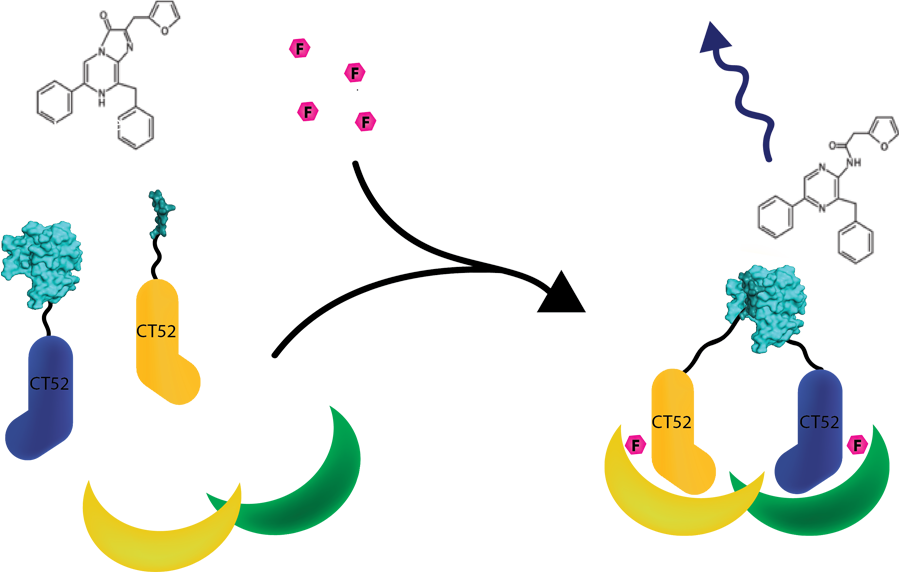Difference between revisions of "Part:BBa K1761005:Experience"
Tjvsonsbeek (Talk | contribs) (→Application TU Eindhoven 2016) |
Issybradley (Talk | contribs) |
||
| Line 18: | Line 18: | ||
''Figure 1: Measurement system for T14-3-3 heterodimers using the NanoBiT system linked to CT52'' | ''Figure 1: Measurement system for T14-3-3 heterodimers using the NanoBiT system linked to CT52'' | ||
| + | == Application UCNZ 2024 == | ||
| + | |||
| + | We used this part in combination with LgBiT (BBa_K1761005) linked to the cage forming protein Encapsulin (creating BBa_K5330020 and BBa_K5330021). These parts act as a reporter system for cage formation (see figure below and the respective pages for the parts mentioned above). | ||
| + | |||
| + | <html> | ||
| + | <center><img src = "https://static.igem.wiki/teams/5330/registry-parts/screenshot-2024-09-26-at-1-14-41-pm.png"></center> | ||
| + | </html> | ||
===User Reviews=== | ===User Reviews=== | ||
Latest revision as of 21:54, 1 October 2024
This experience page is provided so that any user may enter their experience using this part.
Please enter
how you used this part and how it worked out.
Applications of BBa_K1761005
Application TU Eindhoven 2015
LargeBit is used as an intracellulair signaling domain. In combination with SmallBit (part BBa_K1761006 [1]) a Bioluminescence signal can be generated by adding furimazine. We verified that this part alone with furimazine gives no signal. The same goes for SmallBit. Therefore, these parts are ideally as signaling components if you want to check if two parts are present.
Application TU Eindhoven 2016
iGEM TU Eindhoven used this part in combination with SmallBiT ("https://parts.igem.org/Part:BBa_K1761006"). These parts were linked to the CT52 protein. These linked parts are:
CT52-SmallBiT"https://parts.igem.org/Part:BBa_K2065000" and CT52-LargeBiT"https://parts.igem.org/Part:BBa_K2065007"
Those two proteins could dimerize on our heterodimeric T-14-3-3 scaffold proteins with mutation which were designed by our team. When dimerized the functional luciferase protein was formed. This protein showed luminescence at 460 nm. This system was used as a read out method for T14-3-3 heterodimers. It is schemtically visualised in figure 1. For more detailed information about the application the NanoBiT system visit our wiki "http://2016.igem.org/Team:TU-Eindhoven/Read-out".

Figure 1: Measurement system for T14-3-3 heterodimers using the NanoBiT system linked to CT52
Application UCNZ 2024
We used this part in combination with LgBiT (BBa_K1761005) linked to the cage forming protein Encapsulin (creating BBa_K5330020 and BBa_K5330021). These parts act as a reporter system for cage formation (see figure below and the respective pages for the parts mentioned above).

User Reviews
UNIQcdac7c95d35e8d1b-partinfo-00000001-QINU UNIQcdac7c95d35e8d1b-partinfo-00000002-QINU
